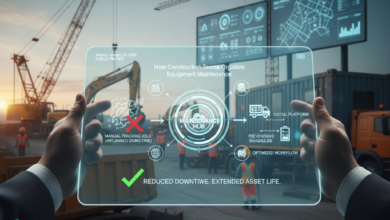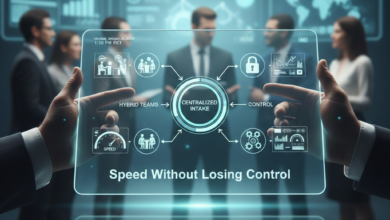Future-Proofing Factories: AI in Manufacturing Leveraging AI Services and Solutions
Learn how AI in manufacturing combined with AI services and solutions is future-proofing factories. Explore predictive maintenance, quality control, and Industry 4.0 innovations.

Introduction
The manufacturing industry is entering an era where agility, efficiency, and intelligence define success. As factories evolve, the integration of AI in manufacturing is no longer optional it’s a necessity. From predictive maintenance to quality optimization, AI is helping manufacturers operate smarter and faster.
Yet, AI by itself cannot drive transformation. It requires AI services and solutions to tailor intelligence into actionable tools, ensuring seamless integration with existing systems and scalable growth. Together, they enable manufacturers to future-proof their factories for Industry 4.0 and beyond.
The Role of AI in Manufacturing
AI is revolutionizing manufacturing operations by providing data-driven insights that enable better decision-making and automation. Some critical applications of AI in manufacturing include:
-
Predictive Maintenance: AI monitors equipment in real time to predict potential failures, preventing costly downtime.
-
Automated Quality Control: Machine vision systems inspect products with precision, reducing defects and recalls.
-
Production Optimization: AI algorithms identify inefficiencies in production lines, improving throughput and reducing waste.
-
Energy Management: AI analyzes energy consumption patterns to optimize usage and reduce costs.
These innovations make factories more intelligent, efficient, and responsive to market demands.
Why AI Services and Solutions Are Essential
While AI provides the intelligence, AI services and solutions turn it into operational capabilities. Off-the-shelf AI tools may offer some value, but customized solutions ensure that AI works effectively within specific manufacturing environments.
Benefits of AI services and solutions include:
-
Custom AI Application Development: Solutions tailored for specific production lines, plants, and operational goals.
-
System Integration: Seamlessly connecting AI tools with ERP, IoT platforms, and legacy systems.
-
Scalable Implementation: Starting with pilot programs and expanding enterprise-wide as results are validated.
-
Real-Time Analytics & Dashboards: Presenting actionable insights for faster, smarter decision-making.
This tailored approach ensures AI delivers measurable value and sustainable benefits.
How AI Services Help Future-Proof Factories
The convergence of AI in manufacturing and AI services and solutions empowers factories to adapt to future challenges. Here’s how:
1. Enhanced Predictive Maintenance
AI service providers design solutions that continuously monitor machinery, predict failures, and schedule maintenance proactively. This minimizes downtime and protects production schedules.
2. Intelligent Quality Control
Custom AI solutions use machine vision and machine learning to detect anomalies, ensuring consistent product quality and reducing waste.
3. Optimized Supply Chain Management
AI services integrate predictive analytics into supply chain platforms, improving inventory forecasting, logistics planning, and procurement decisions.
4. Digital Twins for Factory Simulation
AI-powered digital twins create virtual replicas of production systems, allowing manufacturers to test process improvements and simulate scenarios without disrupting operations.
These tools ensure factories are not only efficient today but adaptable to tomorrow’s technological advancements.
Emerging Trends in Future-Ready Manufacturing
As technology evolves, the combination of AI in manufacturing and AI services and solutions will continue to redefine factory operations. Key trends include:
-
Hyper-Automation: Fully autonomous production lines combining AI, robotics, and IoT.
-
Sustainability and Green Manufacturing: AI-driven optimization reduces energy consumption and environmental impact.
-
Augmented Reality for Maintenance: AI-enhanced AR guides technicians through complex repairs in real time.
-
Collaborative Human-Machine Workflows: AI systems support human operators in complex tasks, enhancing efficiency and safety.
Factories that adopt these innovations will stay competitive and resilient in an ever-changing industrial landscape.
Conclusion
Future-proofing factories requires a strategic blend of AI in manufacturing and AI services and solutions. While AI provides the intelligence, custom services and solutions ensure that intelligence translates into actionable, scalable, and efficient factory operations.
By adopting these technologies, manufacturers can optimize production, enhance quality, reduce costs, and position themselves for sustainable growth in the Industry 4.0 era. The factories of the future will not just be automated they will be intelligent, adaptive, and ready for whatever challenges lie ahead.




